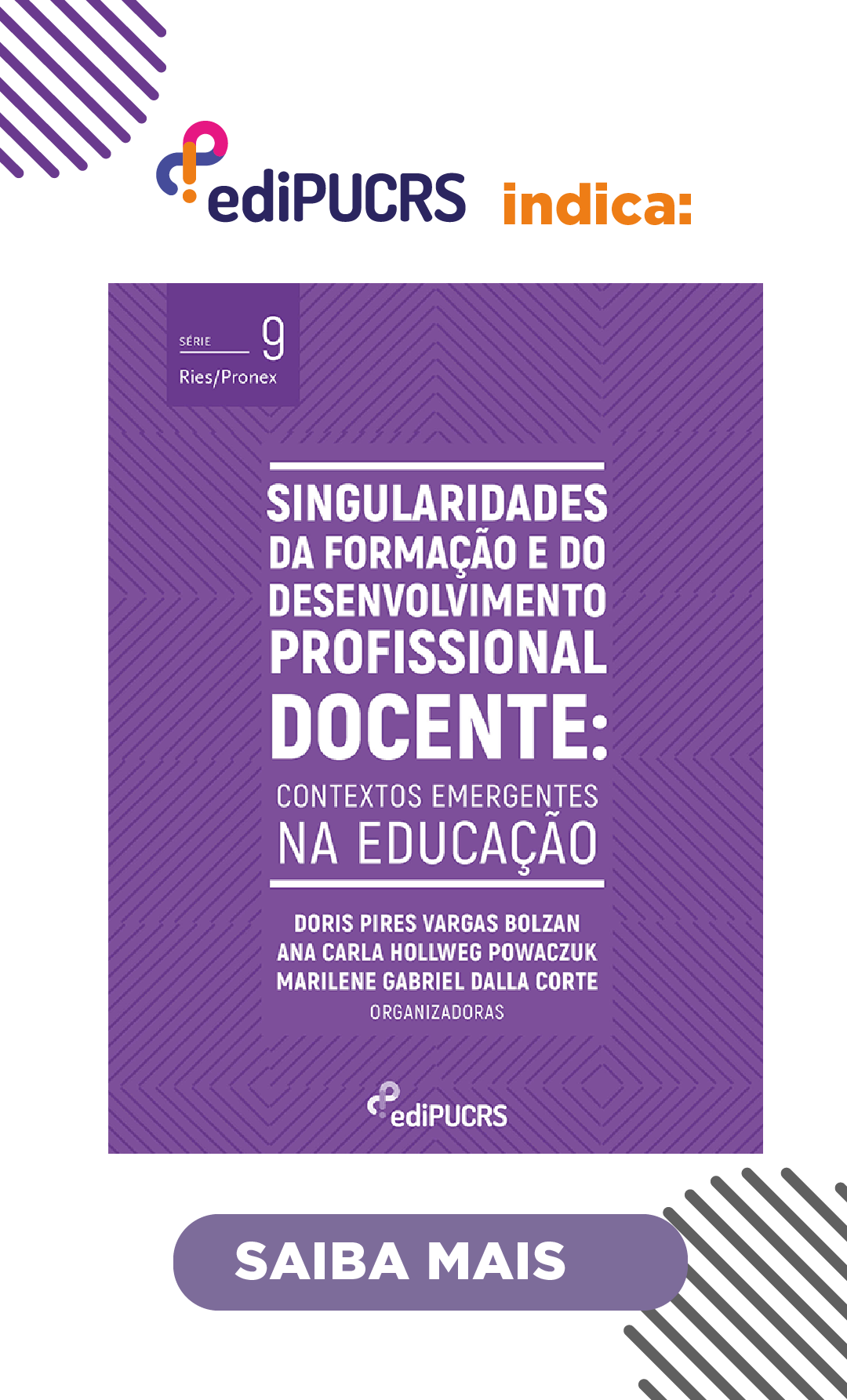Academic innovation
conceptualization and reflections of its approach in higher education institutions
DOI:
https://doi.org/10.15448/2179-8435.2024.1.45209Keywords:
Academic innovation, higher education institutions, innovation conceptAbstract
This article proposal arises from the need to improve knowledge about innovation processes in Higher Education Institutions (HEIs). This study emerged from a Thesis project and focuses on its first specific objective, the understanding of the concepts of Academic Innovation and its relevance for Higher Education Institutions. Methodologically, a bibliographical research was chosen, with the aim of verifying what there is in the scientific community on the topic. To conceptualize the term Innovation, we turned to scholars in the area related to education. The term Academic Innovation is a nomenclature partially addressed in education, being of great relevance to the world of sciences, due to being associated with didactic innovations in HEI processes, being a somewhat unprecedented topic, as there are not many research at Master’s and Doctorate levels. In this sense, the study contributes in general, with terminology based on what has already been produced by researchers and websites that address this subject in question, focusing on the Higher Education segment, which has invested in innovations, mainly with a focus on the field methodological. As a result, analyzes of the concept of terminology were carried out, contributing to a specific concept of Academic Innovation, which will be, in the light of this article, portrayed by a set of actions developed by Universities, with the aim of assisting academics in their training paths, as well as being a document that has an epistemological contribution to IES.
Downloads
References
ALCANTARA, M. S. Mapa Perceptual da Inovação Acadêmica no Ensino Superior. 2018. Dissertação (Mestrado em Administração de Empresas) – Pontifícia Universidade Católica, Rio de Janeiro, 2018. Disponível em: https://www.dbd.puc-rio.br/pergamum/tesesabertas/
1612375_2018_completo.pdf. Acesso em: 20 maio 2023.
CARBONELL, J. Pedagogias do século XXI: alternativas para a inovação educativa. Porto Alegre: Artmed, 2002.
CARLOS, R. As muitas faces da Inovação Acadêmica. Revista Educação, [s. l.], 2022. Disponível em: https://revistaeducacao.com.br/2022/09/06/faces-da-inovacao-academica/. Acesso em: 6 maio 2023.
CHRISTENSEN, C. M. Universidade Inovadora. Porto Alegre: Bookman, 2013.
FERNANDES, R. R.; SILVA, S. R. Inovação e suas representações: uma análise crítica dos ideais normativos sobre inovação e sua relação com o C&T. Revista Mundi Engenharia, Tecnologia e Gestão, Paranaguá, v. 5, n. 3, p. 1-18, 2020. Disponível em: https://doi.org/10.21575/25254782rmetg2020vol5n31221. Acesso em: 19 ago. 2024. DOI: https://doi.org/10.21575/25254782rmetg2020vol5n31221
GODIN, B. The Spirit of Innovation. Montréal: INRS, 2018. PDF. Disponível em: http://www.csiic.ca/wp-content/uploads/2018/06/Spirit.pdf. Acesso em: 23 jan. 2019.
INOVAÇÃO. In: DICIONÁRIO Priberam. [S. l.: s. n.], 2023. Não paginado. Disponível em: https://dicionario.priberam.org/inova%C3%A7%C3%A3o. Acesso em: 24 mar. 2023.
MERCADO, L. P. L. Formação continuada de professores e novas tecnologias. Maceió: Editora EDUFAL, 1999.
MINAYO, M. C. S. (org.). Pesquisa social: teoria, método e criatividade. 18. ed. Petrópolis: Vozes, 2001.
MORAN, J. Educação híbrida: um conceito-chave para a educação, hoje. In: BACICH, L.; TANZI NETO, A.; TREVISANI, F. M. (org.). Ensino híbrido personalização e tecnologia na educação. Porto Alegre: Penso, 2015. p. 40-54.
NASCIMENTO, R. R.; CARVALHO, A. V.; VIANNA, W. B. Contribuições da gestão do Conhecimento para a gestão da Inovação. In: DUARTE, E. N. et al. Enfoques Multidisciplinares da Gestão do Conhecimento. João Pessoa: Editora UFPB, 2019. p. 135-149.
NÓVOA, A. Professores: imagens do futuro presente. Lisboa: Educa, 2009.
ORGANIZAÇÃO PARA COOPERAÇÃO E DESENVOLVIMENTO ECONÔMICO. Manual de Oslo: Diretrizes para a coleta e interpretação de dados sobre inovação. 3. ed. Paris: OCDE, 2005.
PARIAT, M.; LAFONT, P. Projet d’innovation en faveur de la réussite des primo-entrants dans l’Enseignement Supérieur français. Educação Por Escrito, Porto Alegre, v. 9, n. 2, p. 283-305, 2019. Disponível em: https://doi.org/10.15448/2179-8435.2018.2.32751. Acesso em: 13 mar. 2023. DOI: https://doi.org/10.15448/2179-8435.2018.2.32751
PLANING, P. On the origin of innovations – the opportunity vacuum as a conceptual model for the explanation of innovation. Journal of Innovation and Entrepreneurship, [s. l.], v. 6, n. 5, p. 1-18, 2017. Disponível em: https://innovation-entrepreneurship.springeropen.com/ DOI: https://doi.org/10.1186/s13731-017-0063-2
articles/10.1186/s13731-017-0063-2. Acesso em: 15 ago. 2024.
SECRETARIA DE MODALIDADES ESPECIALIZADAS DE EDUCAÇÃO. Inovação acadêmica: boas práticas, São Paulo, 2016. Disponível em: https://www.semesp.org.br/
inovacao/noticias/boas-praticas-de-inovacao-academica/. Acesso em: 15 mar. 2023.
SLAUGHTER, S.; LESLIE, L. L. Academic Capitalism: Politics, Policies, and the Entrepreneurial University. Baltimore: The Johns Hopkins University Press, 1997.
Downloads
Published
How to Cite
Issue
Section
License
Copyright (c) 2024 Educação Por Escrito

This work is licensed under a Creative Commons Attribution 4.0 International License.





